CRITERION'S 4K DCP RESTORATION PREMIERES FRIDAY AT THE QUAD IN NY
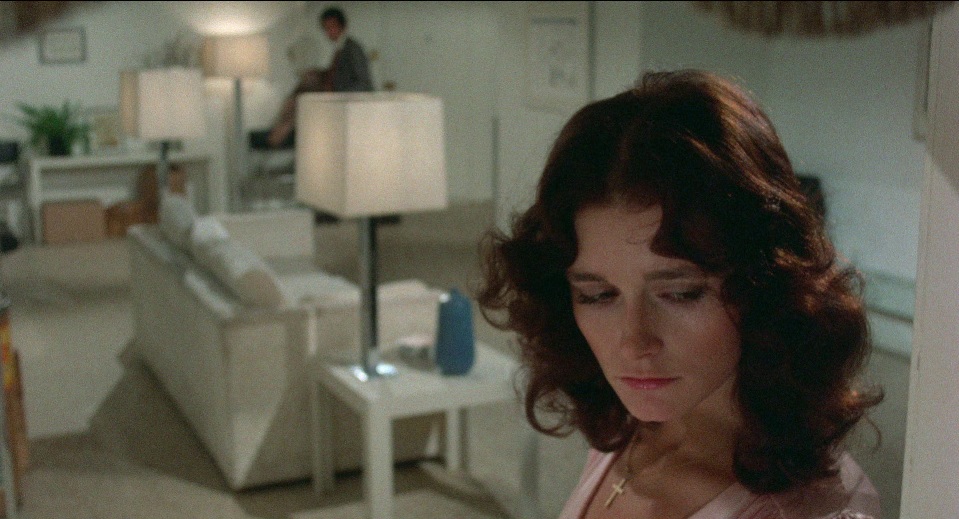
The capture above comes from DVD Beaver's review of the new Criterion Blu-ray edition of Brian De Palma's Sisters, which will be released October 23rd. This Friday, however, the new 4K restoration of the film will premiere at The Quad Cinema in New York. Reviews have been popping up this week-- here are some links/excerpts:
The 1973 slasher film “Sisters,” digitally restored and playing at the Quad Cinema, as well as streaming on services like FilmStruck, was Brian De Palma’s first homage to Alfred Hitchcock. Shamelessly lurid, it’s also his best.“Sisters” boasts an angsty score by Bernard Herrmann, who wrote the music for a number of Hitchcock films including “Psycho,” from which “Sisters” borrows much of its plot. De Palma also drew on Hitchcock’s brilliant use of editing to generate suspense, augmenting conventional crosscutting with his taste for split-screen action.
Hitchcock’s “Rear Window” is another source, bolstered by De Palma’s own interest in voyeurism. Indeed, “Sisters” opens with an episode from a mock quiz show called “Peeping Tom,” which allows a meet-cute between Danielle (Margot Kidder), a model hired for the show, and a winning contestant, the advertising salesman Philip (Lisle Wilson, best remembered for his regular role on the mid-1970s sitcom “That’s My Mama”).
That “Peeping Tom” awards Philip, who is African-American, dinner for two at a tacky theme restaurant called the African Room suggests that, like De Palma’s early independent films, “Sisters” will have elements of social satire; that Philip invites Danielle to dine with him raises the ante, not least by introducing her creepy “ex-husband” (the frequent De Palma collaborator William Finley); that Danielle turns out to have a twin complicates everything.
Although some mistakenly credited a “rave” review of “Sisters” by The New Yorker critic Pauline Kael with launching Mr. De Palma’s Hollywood career, her notice was actually an unequivocal pan: “‘Sisters,’” she wrote, “is a long way from being the brilliant thriller the ads say it is, but its limp technique doesn’t seem to matter to the people who want their gratuitous gore.”
It was actually Vincent Canby who wrote a strongly positive review in The New York Times, calling De Palma, hitherto known for his anarchic comedies, “a first-rate director” and noting, with regard to “Sisters,” that “an intelligent horror film is very rare these days.” (Kael boarded the De Palma bus a year later with his rock extravaganza “Phantom of the Paradise.”)
Hitchcock was a master of dark humor. De Palma’s wit is more facetious and, one might say, lacerating. Presupposing the viewer’s knowledge of “Psycho,” “Sisters” is something like a jaded, politicized remake, reflecting post-1960s disillusionment. The film scholar Chris Dumas points out that De Palma’s substitutions are crucial. His psychotic killer is a white woman and, rather than the ambivalent adulteress of “Psycho,” the victim is a black man (a role De Palma optimistically hoped might attract Sidney Poitier). The only witness to the murder is a 25-year-old would-be muckraking reporter for a neighborhood weekly (Jennifer Salt), widely disbelieved by investigators because of her articles on police brutality.
Once this allegorical setup is grasped, the journalist’s fate, the disposition of the corpse and the movie’s final shot make for a thriller that, while lesser than Hitchcock’s, is more brutally cynical and despairing.
Brad Gullickson, Film School Rejects
Herrmann’s score screams with the intensity of the emotions being savaged by the characters. There are no lows, only apocalyptic heights of ecstasy and revulsion. Yes, the restoration offers a classy, natural picture, but the uncompressed monaural soundtrack is enough to demand your dollars. Herrmann blares with the recognizable fervor of his Vertigo, but the New Hollywood aesthetic allows him to unleash whatever last drops of good taste he might be holding onto. The composer hits you with one fist while De Palma slaps you with another. Thank you, sirs, may I have another?While De Palma had directed six films prior to Sisters, this is the first in his canon to be infused with a genuine sense of danger. It’s a risk that oozes from his twisted sensibilities, and the fear is that its toxicity is infectious. An inability to resist his deviant delights might transform you into a lifelong acolyte of the depraved. Commit or join the safety of the AFI approved films he’s riffing against.
You want to look away, but his camera robs you of the option. There is no flight from the scene of the crime. When the plot demands the intrusion of another character, De Palma relinquishes only half of the screen. Jennifer Salt is running to the rescue on the left, but the split-screen gives no respite from the horrors on the right. You can’t turn away. It’s a trick he would later get lost within, but in his earlier efforts, the effect is just one of many sharp instruments in his toolbox.
Sisters relates like a kinky rendition of a Popular Science puff piece. An anecdote overheard by Hitchcock chewed on by Georges Franju and regurgitated by De Palma. Those that lap it up deserve the poisoning that results. Whatever demented gorgers that remain hungry afterward should seek out Carrie, Dressed to Kill, and Body Double.
Kevin Jagernauth, The Playlist
Given his command of the craft and the trademark flourishes that define his oeuvre, including split-screen and split diopter shots, it’s easy to forget that Brian De Palma made a half-dozen pictures before “Sisters” would cement the style that would define his career. It’s unfathomable given the mechanics of today’s industry to imagine any filmmaker would be able to test out their talents on six features before finally scoring the hit that would propel them forward. However, the late ‘60s and ‘70s afforded filmmakers that luxury, and while all the aforementioned details are fascinating, the greatest pleasure in watching the new 4K restoration of “Sisters” is feeling like you’re in the hands of a master from the very first frame.Borrowing liberally from the pages of Alfred Hitchcock — who was still very much alive at the time, with “Frenzy” and “Sisters” released the same year — you can already sense the torch being passed. Not only did De Palma manage to snare the scoring talents of frequent Hitchcock collaborator Bernard Hermann, but the film openly lifts from “Psycho,” “Rope,” and “Rear Window.” However, De Palma was no mere imitator. While you might see the faint fingerprints of Hitchcock on the scotch tape, De Palma’s approach moved beyond homage to transformation. Even more than 40 years after its release, “Sisters” feels thrillingly modern, and shaped with a sense of confidence that is simply awe-inspiring.
Sporting a ludicrous French accent that is nonetheless perfectly pitched for the film’s sensationalist storyline, Margot Kidder leads the picture as Danielle, a Quebecois model and aspiring actress trying to make it in the Big Apple. A chance meeting on a completely bonkers game show has her crossing paths with the handsome and kind Phillip (Lisle Wilson), and the pair goes out for dinner and winds up back at her place. However, the efficiently lean script by De Palma and Louisa Rose starts pulling the strings early. Danielle’s ex-husband Emil (William Finley) can’t stop hovering around the couple, and Danielle’s twin sister Dominique (also played by Kidder) arrives unexpectedly. Fast-forward a little bit and soon the cops and an investigative reporter, Grace (Jennifer Salt), are thrown into the mix and if you haven’t seen the picture, it’s best to experience the rest cold.
What’s most striking about De Palma’s film four decades later is its stunning composition. The director’s ability to frame and stage lengthy sequences — particularly when utilizing split-screen perspectives to ratchet up the tension — can still leave many contemporary filmmakers and audiences stunned. Of course, De Palma would employ this technique throughout his career with increasing complexity, and while on some later occasions the style tends to be a crutch for a screenplay that isn’t cutting it, with “Sisters” it’s all part of a seamless whole. The director clearly knows the material is tabloid level trash, but his audacity matches his accomplishment. “Sisters” never carries any feeling that De Palma is showing off or flexing his cinematic chops because he can, or is above the material. The film is utterly transfixing because it plays its schlock straight, and paired with Hermann’s hair-raising throwback score, the effect is giddy. The result is pure entertainment, and even though the film’s big twist can be seen coming with its first twenty minutes, you want to see how it gets there anyway. It’s worth the journey and it’s a helluva ride to take.
Particularly early on, De Palma’s films tended to orbit around freaks and outsiders — “Phantom Of The Paradise” and “Carrie” would be two of the next three pictures he would make following “Sisters” — but the sympathy he feels for these characters, even as they commit horrific acts, has always been notable. In “Sisters,” even as the blood starts to run, the filmmaker feels keenly for Danielle’s inability to cope with the rest of the world. With a background that forever marked her socially out of step, De Palma understands how that might motivate madness, but at the same time, refuses to allow that fact to forgive the choices Danielle makes.
It’s a surprising sensitivity to be found within the ingredients of a high-grade B-movie. However, De Palma has spent his lifetime pushing past and, at his best, transcending the limits of genre pictures. “Sisters” shows the director at a formative point in his career, taking the tools and experiments from his early work, and refining it into his first bonafide classic. However, you’ll probably be having too much fun to even think about that.




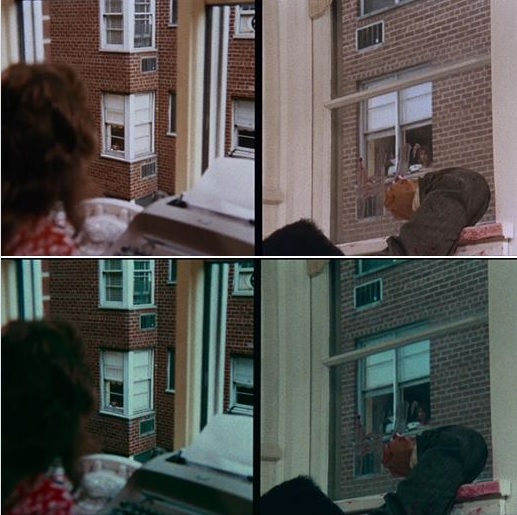 "I am getting used to the new colors and appreciate the vibrancy and texture," states
"I am getting used to the new colors and appreciate the vibrancy and texture," states 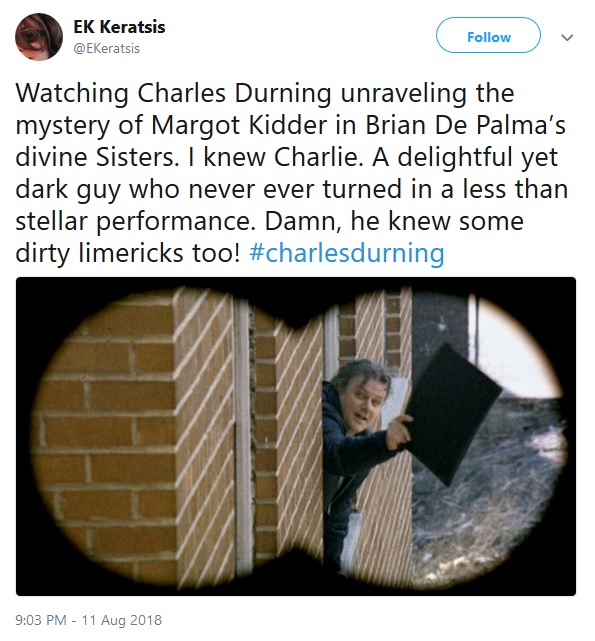



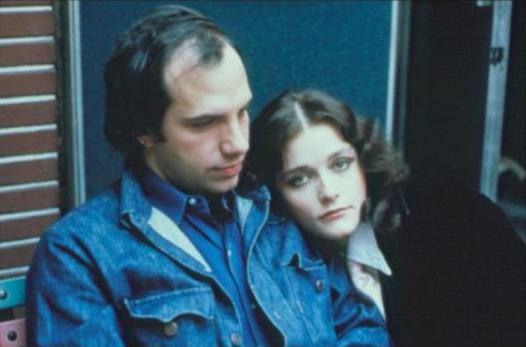
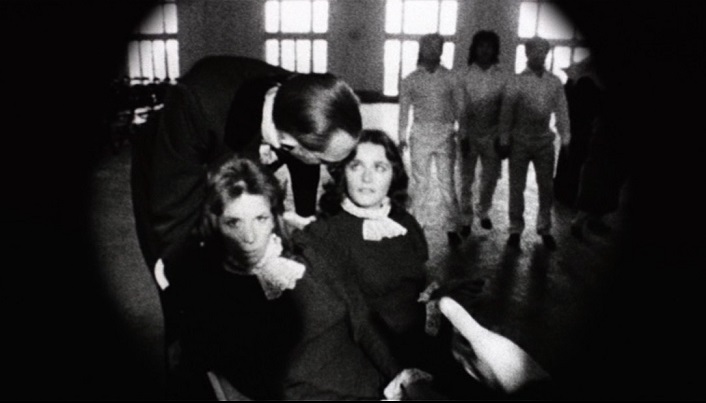
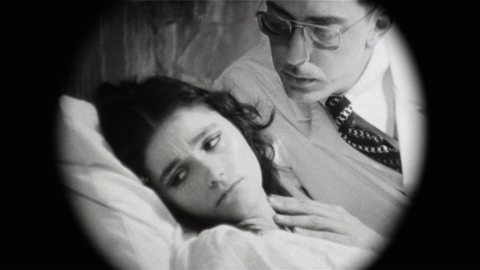 This is a couple of weeks late, but Richard Brody previewed this month's Brian De Palma retrospective at the Metrograph by writing about Sisters for
This is a couple of weeks late, but Richard Brody previewed this month's Brian De Palma retrospective at the Metrograph by writing about Sisters for 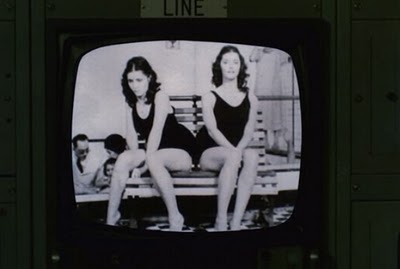 Brian De Palma's Sisters will screen at 8pm Thursday (January 21, 2016) at The Carolina, movie theater six, in Asheville, North Carlina. The screening is free, as part of the weekly
Brian De Palma's Sisters will screen at 8pm Thursday (January 21, 2016) at The Carolina, movie theater six, in Asheville, North Carlina. The screening is free, as part of the weekly 